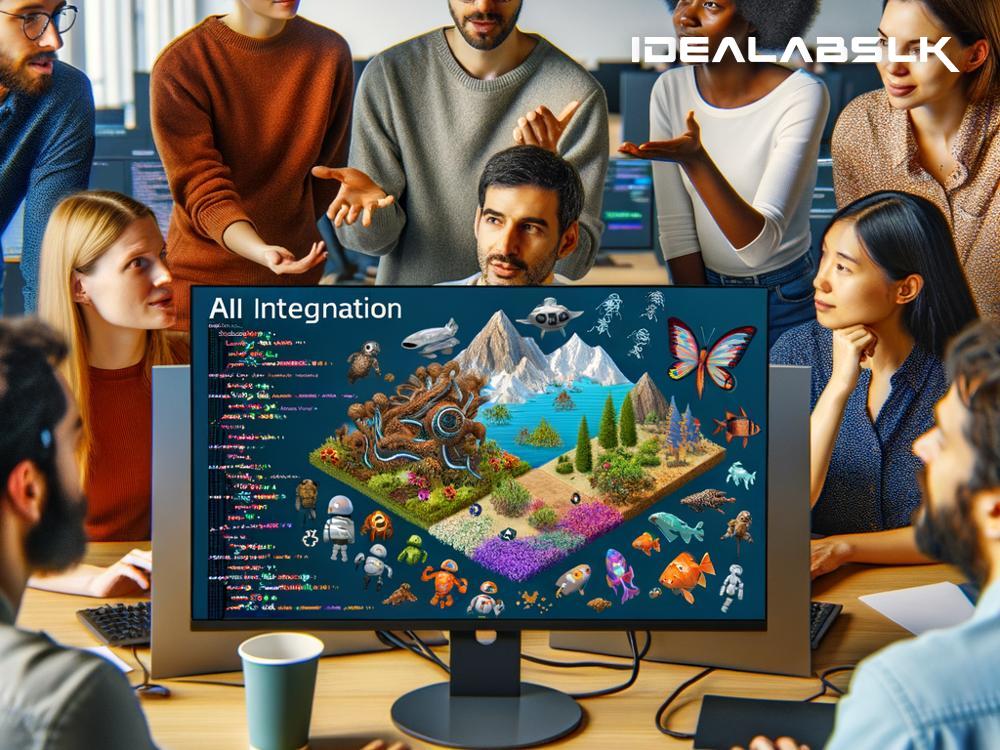AI in Simulation Games: Crafting Complex and Realistic Worlds in 2025
As we edge closer to 2025, the line between virtual worlds and our reality continues to blur, thanks in no small part to advances in Artificial Intelligence (AI). One of the frontiers where AI shows promise in revolutionizing our experience is in simulation games. These are the kind of games that mimic real-world activities, be it flying an airplane, managing a city, or living another life entirely in a virtual world. With machine learning—a branch of AI—developers are beginning to craft more complex and realistic simulations than ever before. Here's a glimpse into how this transformative technology is changing the game, quite literally.
Simulations that Learn and Adapt
Imagine playing a farming game where the weather changes based on real-world climate patterns, or a city simulator where the AI-controlled citizens have their day-to-day lives, preferences, and issues. This isn't just a gamer's dream anymore; it's swiftly becoming reality thanks to machine learning. By feeding AI systems large amounts of data, these systems can learn patterns and make decisions, creating dynamic game environments that adapt and evolve based on player actions. This means that the game world you interact with could be vastly different each time you play, offering a unique, tailored experience to every player.
Smarter NPCs: Beyond the Scripted Paths
Non-Playable Characters (NPCs) are the heart and soul of many simulation games, providing both companionship and competition. Traditionally, these characters followed pre-written scripts, limiting their responses and actions. With machine learning, NPCs learn from interactions—both with the player and their environment—leading to more realistic and unpredictable behaviors. Imagine a virtual shopkeeper who remembers your buying habits over time or rival racers that adapt to your driving style to challenge you better. This leap in AI not only enhances the immersion but also the complexity and replayability of simulation games.
Virtual Ecologies and Economies: Complex Systems Made Simple
Simulation games often involve managing complex systems, such as ecological balances in a nature simulator or economic dynamics in a business simulator. AI, through pattern recognition and predictive modeling, can manage these intricate systems, making them behave more like their real-world counterparts. This leads not only to more realistic and challenging gameplay but also provides an educational tool for understanding complex systems in a simplified, engaging manner.
The Road Ahead: Ethical Considerations and Beyond
As we embrace the potential of machine learning in simulation games, it's also critical to address the ethical considerations. Ensuring that AI-driven games remain accessible and inclusive, while avoiding unintentional biases in AI behavior, is paramount. Furthermore, as these games become more lifelike, developers must handle sensitive scenarios with care, ensuring that AI interactions remain respectful and appropriate.
Looking ahead, the fusion of AI and simulation games holds vast potential beyond entertainment. Such technologies could be used for training purposes in fields like medicine, aviation, and urban planning, providing safe, realistic environments to practice and learn. The line between playing a game and training for real-life scenarios will continue to blur, bringing with it exciting possibilities for both personal development and professional training.
Conclusion: A New Era of Gaming Awaits
By 2025, simulation games powered by machine learning are poised to offer experiences that are richer, more engaging, and more reflective of the complexity of our world. As AI continues to evolve, so too will our virtual playgrounds, offering not just entertainment, but insights into the workings of our world and ourselves.
The marriage of simulation gaming and AI isn't just about the future of entertainment; it's about the future of learning, understanding, and engaging with the systems that govern our lives. As developers continue to push the boundaries of what's possible, we stand on the brink of a new era in gaming—where the lines between the virtual and the real are not just blurred, but intertwined. In 2025 and beyond, the games we play will not just simulate reality; they will help us to better understand it, prepare for it, and engage with it in meaningful ways.
As we look forward to this exciting future, it's clear: the game is just the beginning.

